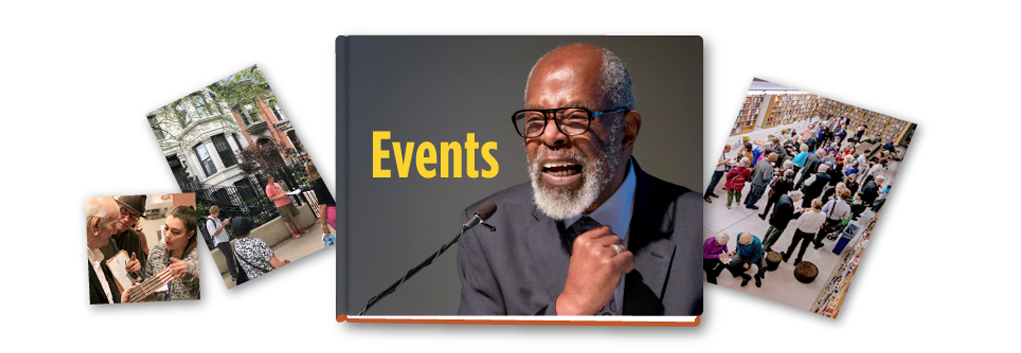
Maggie Andersen
Friday, March 28, 2025
By Jasminum McMullen
Writuals explores how our city’s rich literary heritage, cultural diversity, and iconic spaces inspire routines that fuel local authors’ work.

Maggie Andersen has published in the Coal Hill Review, CutBank, Grain, Southern California Review, Knee-Jerk, and South Loop Review, among others. In addition to teaching at Dominican University, she serves as Literary Manager at the Gift Theatre Company. She lives in Chicago with her husband, John, and her son, Archie.
CLHOF: What are your “writuals,” and how have they evolved?
Maggie Andersen: I like writing in cafes and libraries, where I can usually be anonymous and focused. (See: not at home and not in my work office) In my twenties and early thirties, I would write late into the night, but now, the earlier, the better. That’s just being a woman in my forties with a child to care for and students to teach. Some of my favorite spots to write: the Sulzer Library, Khepri Café in Albany Park, Café Urbano
CLHOF: If you could have coffee with any Chicago author, past or present, who would it be and why? How has their work or legacy influenced your writing?
Maggie Andersen: Gwendolyn Brooks and Saul Bellow would be my dream dates--I’m in awe of the way they write class and race without ever feeling didactic, and the emotional complexity in their work is perhaps the greatest gift. My favorite living writer to have coffee with is Stuart Dybek. He was my graduate school mentor and remains my favorite writer. (I mean it!) He’s my blue-collar bard. Never felt fully represented in literature until I read him.
CLHOF: Chicago is a city known for its activism and social consciousness. How, if at all, do these civic engagement and social justice elements find their way into your writing rituals or themes? Do you feel a duty to reflect or challenge the city’s socio-political landscape in your work?
Maggie Andersen: Chicago is often a character in my work, so yes: I feel an obligation to write its sociopolitical landscape. That being said, I work very hard not to be didactic. No shade—it’s just not for me. I find I can reach audiences more effectively when I write complex and nuanced humans, and when I approach the writing with more questions than answers. When I was growing up in Chicago in the 70s and 80s, my neighborhood was distinctly working class, as was much of Chicago. I went to an affordable Catholic school where we all knew the difference between Mexican and Guatemalan, Filipino and Korean, Irish and German. You know what I mean? We paid attention to each other, and we were interested in each other. We knew something about irreverence and humor. We occasionally hurt each other. But we lived together, intimately, in apartments and church basements and park district fieldhouses. I am always trying to write back to that place. I’m also trying to write toward the future I’d like to see.
CLHOF: Name a movie shot in Chicago that best describes your writing style.
Maggie Andersen: Ghostlight. An excellent film. I highly, highly recommend. It’s a love letter to Chicago storefront theater, and I spent my early adulthood in those spaces. The movie celebrates scrappy characters and unlikely alliances, which I try to do too.
CLHOF: What advice would you give someone who wants to write and publish in the city?
Maggie Andersen: Get involved with live lit as soon as possible. Go to You’re Being Ridiculous and chat with Jeremy and Andy. Go to Sunday Salon and chat with Ignatius—go to 2nd Story and chill with Amanda. (All of these people want to talk to you, I promise.) Find Lily Be wherever she’s performing, and take a class at Story Studio with any of the fabulous instructors. Frequent our indie bookstores and get on their lists to find out about author events. Read literary magazines, all of them. Submit to them when you’re ready, and let it take as long as it needs to take. While you’re waiting, try to enjoy life in Chicago.
Jasminum McMullen is an Associate Board Director at the Chicago Literary Hall of Fame who is interested in engaging writers from or living in Chicago about their writing rituals. Her writing has appeared in The Elevation Review, Black Joy Unbound, Mamas, Martyrs, and Jezebels, and is forthcoming in Past Ten.








